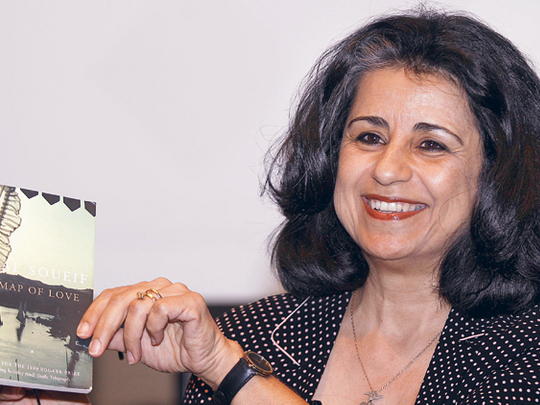
Dubai: "I hoard, I keep things, I cut them out of newspapers and collect them," said Ahdaf Soueif, Egyptian novelist and political and cultural commentator, at a session at the Emirates Airline Festival of Literature on Thursday afternoon.
Best known for her novel Map of Love, Ahdaf commonly uses Arabic words in her novels.
"I'm very careful where I use Arabic words; there must be a reason for it; like when I used Tarboush instead of Fez which has a negative connotation with it."
"When I started writing; after I got my PhD like a good Egyptian girl who had a life plan; I was taken aback that I was writing in English rather than Arabic."
"Using language as a literary tool is different from using it to convey information. And I found it very difficult to do that in Arabic, she said.
"I have two first languages and I'm most comfortable when I can use both at the same time," she said. "They don't compete, they really cooperate — I've always had two homes after all."
Ahdaf said that she started reading English books as a little girl when she was in England with her mother who was continuing her education.
"I didn't start reading Arabic books until I was a teenager," she said.
"I loved reading. When I daydreamed, which was a lot, I dreamed I was a writer… along with a rock star and a flamenco dancer. At the end of 2000 I was asked by The Guardian to do a reportage on Palestine.
"People [in Palestine] who knew me and read my work said I had to do a literary evening. As I was doing that there was an explosion, but they said never mind, don't worry about it. I learned later that it was a real explosion, someone had really died. But they so wanted to talk about something different."
Under the Gun: A Palestinian Journey was first published in The Guardian and lead to collection of essays, Mezzaterra: Fragments from the Common Ground.
Ground breaking
"I personally translated it and it was published in Al Hayat newspaper. For people in Palestine it wasn't so ground breaking, for them it was just a vivid description of scenes from their lives. I wanted people to see what I saw, not just horror or the negative side, but the grace in which the people insisted on resisting and persevering," she said.
Soueif is also the founder of the Palestinian Literature Festival in 2008.










